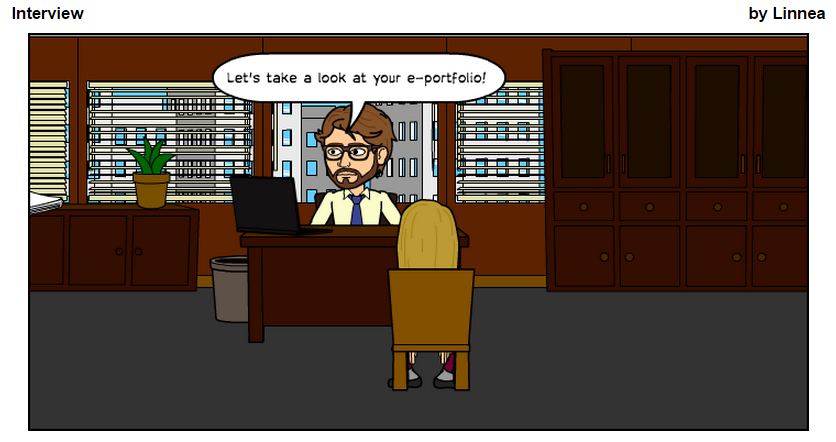Sunday, April 19, 2015
Sunday, April 12, 2015
Sunday, April 5, 2015
Digital Blog Post #J
Concept 1
I
will be entering the Bachelor's program next fall, and as I begin taking
classes in the education department, I am going to start building my own digital
teaching portfolio [a
collection of educational and professional material in an electronic format
(page279)] so that I can
use all the activities and ideas from classes and field experience as sources
of material for my future teaching career. It’s
also important because in the future, having this online portfolio will serve
as a reference to my career-related accomplishments as an educator for school
administers and teaching colleagues. Taking this class has definitely made me
feel more comfortable using various online tools and helped me become more
computer savvy in general, which I think will be quite useful to me when it
comes to actually creating my digital teaching portfolio in the near future. I believe that having an impressive online portfolio to showcase my accomplishments will absolutely put me ahead of the rest when it comes to interviewing for a job as a teacher someday.
Comic made using BitStrips
Concept 2
"Democratic
schools and classrooms are places where students and teachers together
make substantive decisions about important aspects of educational operations,
from the academic curriculum to school climate and rules" (page 283). This
is a concept that interested me a lot because it was never practiced in any of
the schools that I attended, but I would have loved for it to have been a part
of my educational experience. One of the biggest benefits of giving student's
more of a say when it comes to their academics is that it would make them feel
like they have choices, which causes them to feel more motivated to get
involved in what they are learning. I understand the argument that if you give
students too much of a say, that they could abuse this power by requesting less
homework, more free time to socialize and things of that nature, but there's
definitely a happy medium. Students should not be able to have full control
over what they're learning; there are, of course, standards that need to be
followed, but the best option is to let students choose between equally
challenging and engaging worksheets, homework assignments, and different types
of assessments to complete. This will give students a feeling of freedom and responsibility
for making decisions about classroom rules, assignments and procedures.
Concept 3
Online surveys are an excellent way to pre-assess students and inquire about their previous knowledge on the subject you are about to introduce. These surveys provide teachers with data that documents students' progress and learning. In my future classroom(s), I will always give some type of pre-assessment to my students because knowing your students' previous knowledge and level of interest in the subject matter is very important to how you shape your lesson plans to fit the needs and interest of your students. This will also help your students feel important because instead of just being presented with a lesson like "here, this is what you're going to learn", it's more like "okay, how much do you already know and how can we make this interesting for the class as a whole and the different types of learners in the classroom".
References
Maloy, Robert, Verock-O’Loughlin,Ruth-Ellen, Edwards, Sharon A., and Woolf, Beverly Park (2013). Transforming Learning with New Technologies. 2nd Edition. Boston, MA: Pearson Education, Inc.
Subscribe to:
Posts (Atom)
